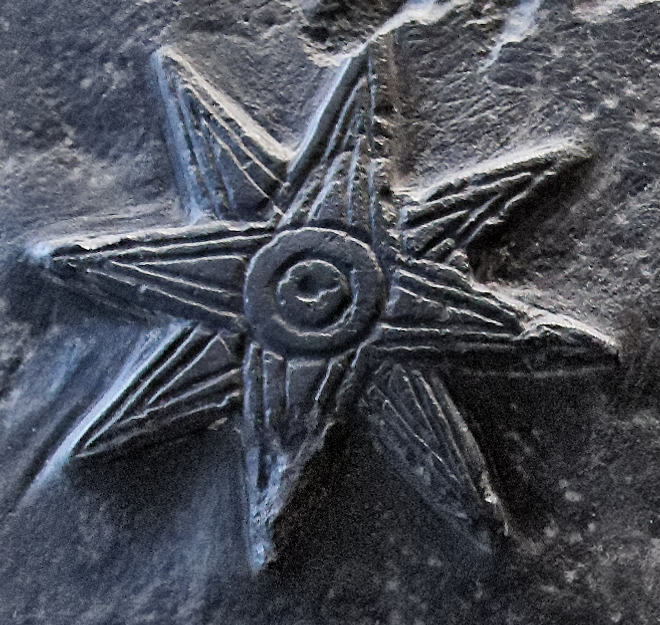Western ‘psychedelic renaissance’ is partly to blame for dwindling supplies of peyote, which produces mescaline
Aldous Huxley wrote about the spiritual visions he had while taking the drug mescaline in The Doors of Perception, while Hunter S Thompson wrote of driving at 100mph while under the influence of it in Fear and Loathing in Las Vegas.
But now a growing number of western spiritual seekers dabbling in psychedelics are accused of causing a shortage of the plant that produces mescaline.
Experts warned last week of a shortage of peyote, a sacred cactus used by Native Americans in religious rituals, which produces the hallucinogenic drug and only grows in limited range across south-western US and northern Mexico. They blame a psychedelic renaissance taking off in wealthy western societies, as well as overharvesting and land development.
Demand for the psychedelic drug, which became popular during the counterculture hippy movement of the 1960s, has surged alongside ayahuasca, a South American psychoactive compound, traditionally used by Indigenous cultures and folk healers in the Amazon and Orinoco basins, and also now widely used by the alternative healing industry.
The shortage is concerning for members of the Native American Church of North America who practise peyotism, a synthesis of traditional Native American beliefs and elements of Christianity that considers peyote a sacred sacrament and has about 350,000 adherents.
“This is a Native American sacred medicine and we don’t want people messing around with it,” said a Navajo member of the church from a congregation in Rio Grande City, Texas, who asked not to be identified. “The Natives people don’t like it. White people shouldn’t mess around with it.”
It’s harvested from the wild so “dwindling supply” means it’s conservationally threatened. Peyoteros (sanctioned harvesters) harvest sustainably but poaching is a big problem and poachers tend to not care and fuck up the plant.
Unsurprisingly the same people celebrating black poachers being killed (liberals and chuds alike) would lose their collective minds if a white American got killed for it as well (especially in America itself).
Is there usually a racial element to complaints about poachers? If so, that’s not something I was aware of, and not an intended part of the meaning of my comment.
not an intended part of the meaning of my comment
Apologies, I wasn’t inferring that it was; I was just making an offhand comment. I see a lot of people on social media who usually celebrate the killing of poachers in Africa and was just musing that the same people who celebrate those killings would feel otherwise if it was white people instead.
That title is literally why reactionaries will go full hog supporting drug use. A swarm of chuds will scour the desert literally inhaling entire cacti just because a brown person said white people shouldn’t.
I have never eaten peyote, but I am curious about it as medicine. Not curious enough to seek it out, but having partaken in psilocybe cubensis and LSD a few times in my late 20s and “broadening my perspective” on cognition I was once on fire for these “other” cosmologies and transmissions of knowledge. In those days, I felt like my family’s culture was fatally diseased and I was striving to connect with anything else like a baby born on a burning boat. Although, I quickly began to understand at the time that it was less about a specific “drug” and more about connecting with other understandings and learnings of this world.
Sorry, if this is abstract, but it was a confused time, trying to navigate a path of integrity to adulthood after being birthed and raised in something I wanted less and less to do with, though it was all I knew. I wasn’t socialist (yet) but I tried to find anything I could about the peoples who came before me that had any alternative way of seeing and being. You can imagine all the weird, anglo-fabricated things I found, as a young person having no connection to any indigenous community and not wanting to burden any with my problems.
As luck would have it, in my early 30s, I was invited to work at an environmental education / outdoor school among the Diné. It just sort of happened because of people I knew and what knowledge the school was looking for. So I jumped at the chance. Of course, by that point, I was more focused on what connection I had found to the world: the environment, gardening, landscaping, food, and agriculture. By that point I had worked for years as a laborer in various tiny communities far from any road, and later done a few years of formal coursework in soils, climate, biology, etc. so I had found some kind of way to see the world, rooted always in an affection for it.
To cut to the interesting part, there was an incredible library there including a translation of the Diné Bahane’. one of my co-workers there–a local who I had become friends with on long afternoons spent talking about fencing, cattle, weather, and food–saw me looking at it and he said, “you should check that out.” happy to report we still stay in touch some 15 years later! anyway, after reading it, our conversations sprawled outward into everything. like we had a new shorthand full of inside jokes and deeper meanings. anyway, some afternoon back then, after we had gone back and forth a few times telling stories about whatever and laughing ourselves to tears, he told me of his first experience in the peyote ritual. the way one is located, what happens, etc. he knew i had had psychedelic trips before by this point and read a few books by and about bilagáana that had been invited to psychedelic rituals among other peoples. for me, i had invariably gone with friends “camping” out in nature where things were quiet, calm, beautiful and reassuring and no one was pressured into partaking.
i’ll spare everyone my description of his description except to say that, logistically it wasn’t all that dissimilar. now, obviously, the internal experience was completely different and i would never expect that to be the same even between twins. but the external setting, the control of the set and setting, the place, the mood, and the provided support was similar. we had constructed our own process out of wanting to feel safe and connected while we sought introspection, not by trying to imitate any indigenous ritual.
of course, what i was doing with my friends out on some remote campground would have enraged my parents, had they known, and my grand parents would have thought i was willingly condemning myself to everlasting damnation in hell. absurd to me now, but back then could fill me with dread and fear.
after he finished his story, i asked him, what prompted his seeking out the ritual when he did. he said, with some mild annoyance, “ugh, my grandma told me i should” sort of using a tone like the way someone might describe an authority figure doling out some chore that one knew needed to be done, but had very little interest in.
we both starting laughing, but in the years since that moment, i am perennially struck by how absolutely distinct and different our lived experiences and community upbringing were, but despite all that we had come to the same place. physically and geographically, sure, but also in other ways.
all that to say, i wish bilagáana could understand that they don’t need to do these things to find what they are looking for. as someone who was once lost in the same way, i empathize with why they feel driven. i also don’t know how to tell them that what they seek is all around them and doesn’t require all this attempted imitation, or whatever it is that they’re doing. i know many who have gone on these long trips to partake in various rituals and i know that could have just as easily been me if i had more money and time in those days, so i feel embarrassed too.
i would like to believe the medicine will overcome the disease in the west among those who partake, but frankly i don’t know if it can when the setting becomes monetized and a mechanism for the further accumulation of settler wealth. and the potential of it becoming scarce due to overharvest fills me with grief. i don’t have any answers, just stories.
if you read all this, thanks.
Most white people thing I have heard in a while
Would synthesized mescaline be a viable alternative for non-Indigenous people or would that still be viewed as a transgression by Indigenous communities?
I think it would be fine, especially as it would reduce the poaching of peyote. Hell, people can grow their own San Pedro cactus and get mescaline from there, if synthesized isn’t their thing. It may still be viewed as a transgression of the spiritual value of the experience, but it would at least stop the poaching for those who actually use peyote in their culture
Indigenous use of peyote begins with gathering it, not just consuming it; and the whole ordeal from start to finish is part of the ceremony. And peyote is very slow growing, so really should be left to those who use it ceremonially. Everyone else can source it from other places imo
takes years to get a cacti going, and using it for drug use at that point isnt, sustainable, i think would be the right word here?
It kinda depends on the variety of San Pedro that you have, as some can grow plenty big in a year. And they produce pups and cuttings until you have too many cactus and a new hobby. Or (in the US) just buy a cutting, they’re not illegal to own
Honestly, the biggest factor is your climate. If you can plant them in the ground, within a few years you could have more than you know what to do with. If you live somewhere warm enough, you could have pots outside that you never mess with except for the occasional freeze
If you live in a cold climate, than yeah, it wouldn’t really be sustainable without a greenhouse or dedicated space for them. Guess it depends how much ye be trying to trip on too, cause if it’s that frequent, you may want to reflect lol
People get too wrapped up in “authenticity”. You can never have an “authentic” Yaquí (or neighboring people) peyote experience unless you came up immersed the traditions, stories and beliefs of those people. Just knowing a “shaman” isn’t enough. The experience will be something, of course, but it can never be what you’re hoping for. Just get some mushrooms.
White sage is also closed practice and being aggressively poached. Which, I mean, it’s a sage. They’re not the easiest plants to grow, but I struggle to imagine that poaching it is easier.






